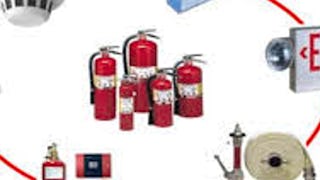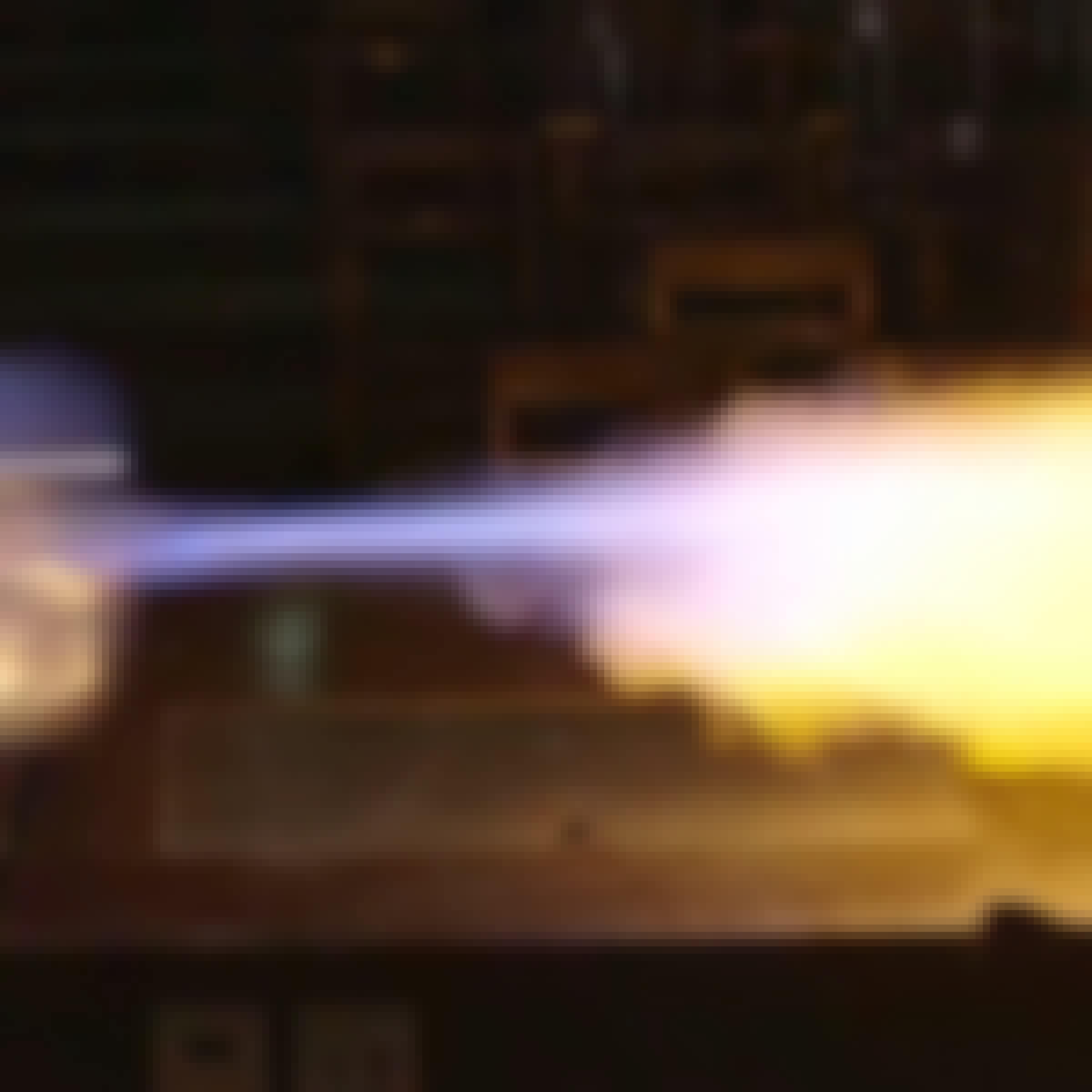Filter by
SubjectRequired
LanguageRequired
The language used throughout the course, in both instruction and assessments.
Learning ProductRequired
LevelRequired
DurationRequired
SkillsRequired
SubtitlesRequired
EducatorRequired
Explore the Hydraulics Course Catalog
 Status: NewStatus: Free Trial
Status: NewStatus: Free TrialL&T EduTech
Skills you'll gain: Safety Training, Maintenance, Repair, and Facility Services, Safety Assurance, Construction, Construction Engineering, Equipment Design, Facility Management and Maintenance, General Construction and Construction Labor, Plant Operations and Management, Construction Management, Risk Control, Environmental Regulations
 Status: Free Trial
Status: Free TrialL&T EduTech
Skills you'll gain: Environmental Engineering, Energy and Utilities, Environmental Regulations, Chemical Engineering, Engineering Analysis, Geostatistics, Water Resources, Production Process, Process Engineering, Manufacturing and Production, Hydraulics, Emerging Technologies, Geospatial Information and Technology, Equipment Design, Mechanical Engineering, Mathematical Modeling
 Status: Free Trial
Status: Free TrialL&T EduTech
Skills you'll gain: Construction Inspection, Building Codes, System Requirements, Facility Management and Maintenance, Hydraulics, Plumbing, Water Resources, Safety and Security, Design Specifications, Engineering Calculations, Technical Standard
 Status: Free Trial
Status: Free TrialSkills you'll gain: HVAC, Building Services Engineering, Equipment Design, Thermal Management, Mechanical Engineering, Hydraulics, Plumbing, Facility Repair And Maintenance, Drafting and Engineering Design, Control Systems, Energy and Utilities, Engineering Calculations
 Status: Free Trial
Status: Free TrialRice University
Skills you'll gain: Mechanics, Physics, Engineering Calculations, Mathematical Modeling, Algebra, Calculus, Physical Science, Applied Mathematics, Trigonometry
 Status: Free Trial
Status: Free TrialUniversity of Leeds
Skills you'll gain: Stakeholder Management, Stakeholder Engagement, Engineering Management, Scope Management, Risk Management, Project Finance, Project Scoping, Program Management, Project Portfolio Management, Project Risk Management, Project Management, Business Risk Management, Governance, Project Management Life Cycle, Project Performance, Contract Management, Financial Analysis, Project Implementation, Return On Investment, Cost Management
 Status: Free Trial
Status: Free TrialSkills you'll gain: Building Codes, Construction, Safety Training, Construction Inspection, Safety Assurance, Building Design, Facility Management and Maintenance, Electrical Systems, Safety and Security, Control Systems, Hydraulics, Architectural Design, Systems Integration
 Status: Free Trial
Status: Free TrialRice University
Skills you'll gain: Mechanics, Physics, Structural Analysis, Mechanical Engineering, Calculus, Engineering Calculations, Engineering Analysis, Physical Science, Mathematical Modeling, Trigonometry
 Status: Free Trial
Status: Free TrialSkills you'll gain: Energy and Utilities, Safety Assurance, Environmental Regulations, Accident Prevention, Environment and Resource Management, Environmental Engineering, Plant Operations and Management, Waste Minimization, Fire And Life Safety, Chemical Engineering, Risk Analysis, Failure Mode And Effects Analysis, Electric Power Systems, Process Engineering
 Status: Free Trial
Status: Free TrialThe Hong Kong University of Science and Technology
Skills you'll gain: Differential Equations, Engineering Analysis, Applied Mathematics, Calculus, Integral Calculus, Numerical Analysis, Mathematical Modeling, Advanced Mathematics, Linear Algebra, Vibrations, Electrical Engineering, Derivatives
 Status: Free Trial
Status: Free TrialL&T EduTech
Skills you'll gain: Manufacturing Processes, Hydraulics, Control Systems, Manufacturing Operations, Mechanical Engineering, Equipment Design, Maintenance, Repair, and Facility Services, Chemical Engineering, Thermal Management, Failure Analysis, Automation, Safety Assurance, Quality Assurance
 Status: Free Trial
Status: Free TrialThe Hong Kong University of Science and Technology
Skills you'll gain: Integral Calculus, Engineering Calculations, Calculus, Engineering Analysis, Engineering, Geometry, Advanced Mathematics, Mechanical Engineering, Applied Mathematics, Electrical Engineering, Physics, Derivatives
In summary, here are 10 of our most popular hydraulics courses
- Construction Equipment Maintenance & Safety: L&T EduTech
- Hydrocarbon Exploration and Production: L&T EduTech
- Fire Protection System: L&T EduTech
- Air Conditioning Equipment Selection, Design and Sizing: L&T EduTech
- Physics 101 - Forces and Kinematics : Rice University
- Managing Major Engineering Projects: University of Leeds
- Basics of Fire Protection, Detection and Life Safety Systems: L&T EduTech
- Physics 101 - Energy and Momentum: Rice University
- Utilities, Safety & Environmental Care in Oil & Gas Industry: L&T EduTech
- Differential Equations for Engineers: The Hong Kong University of Science and Technology










